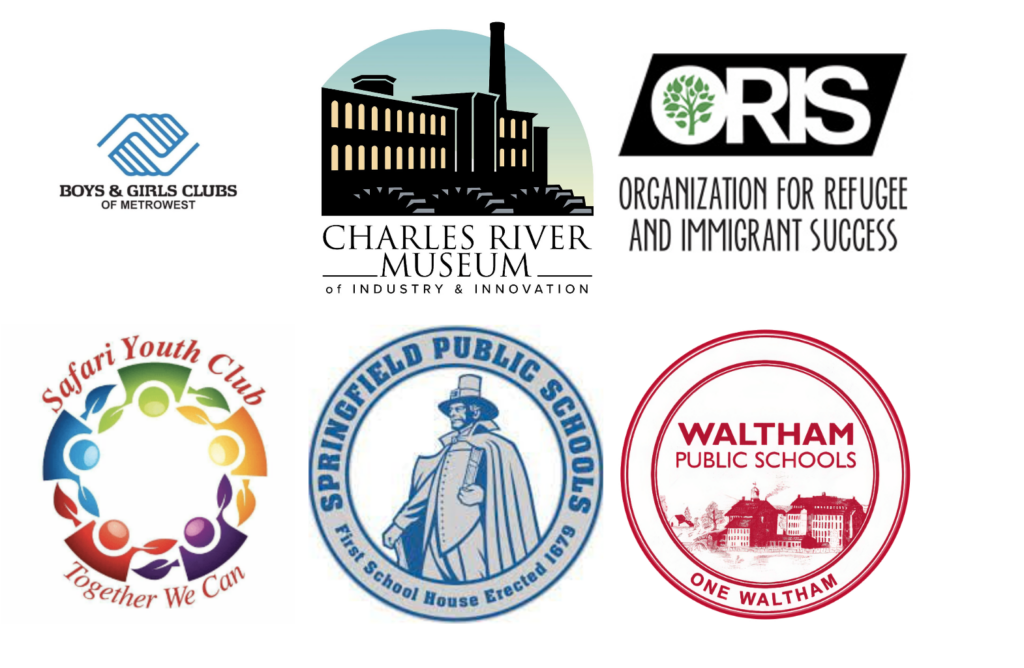Teaching
ENGR 3100: Collaborative Service Engineering Project
Twelve students from Boston College’s Human Centered Engineering program spent two weeks in Bengaluru India in late May and early June 2024 for their Collaborative Service Engineering Project, through the Office of Global Engagement. The students were led by Sabet Family Dean’s Faculty Fellows in Engineering, Professors Avneet Hira and Siddhartan Govindasamy. The students worked with two farming communities outside the city on projects involving water filtration and precision agriculture. In the water filtration project, the students designed and built a filter to help enable the use of drip irrigation, a more water efficient method of irrigating crops. In the precision agriculture project, the students developed a low-cost, wireless sensor system to help farmers perform targeted watering and fertilization of dragon fruit plants, a crop new to Southern India. The students worked intensively for the two weeks along with faculty members and students from CHRIST University in Bengaluru. Besides working on the projects, the students also had the opportunity to explore Bengaluru and Mysuru, a historic city nearby.
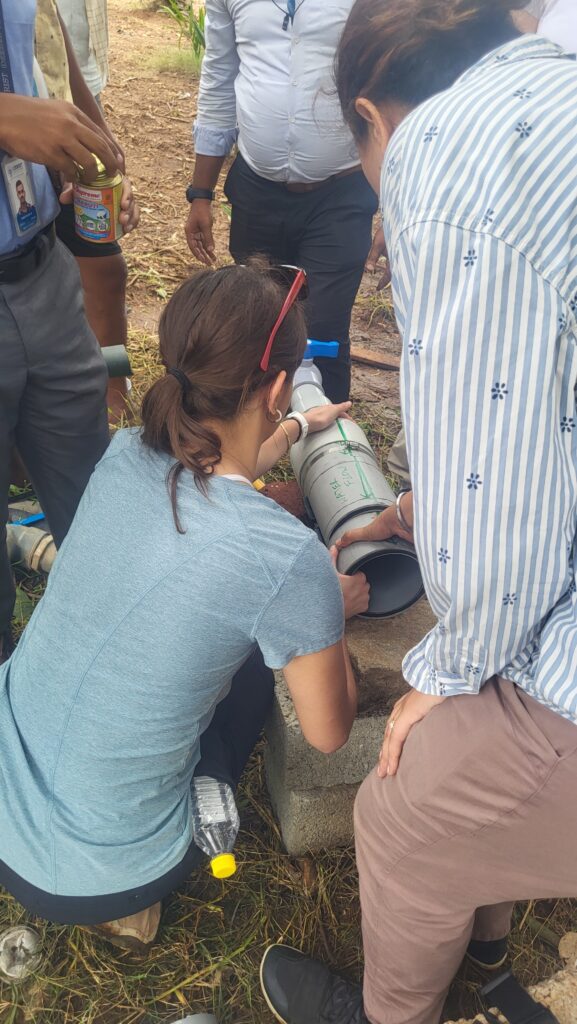
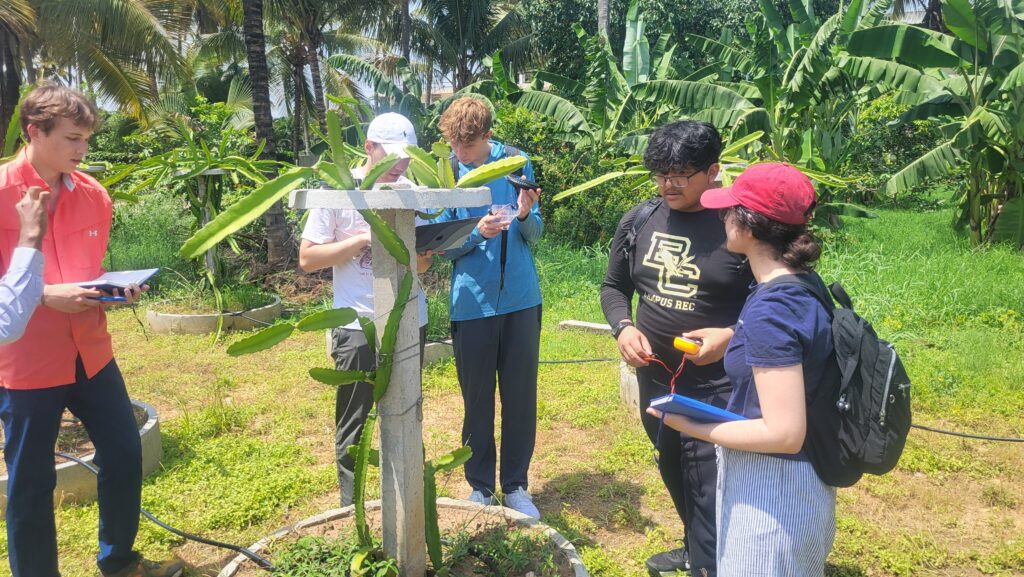
ENGR 2702 & ENGR 4704: Second-Year and Fourth-Year Human-Centered Engineering Reflection
In the course, we participate in weekly reflections designed to integrate our experiences across Human-Centered Engineering (HCE) courses, core courses, and our experiences outside of the classroom. We discuss and practice ways to be reflective engineering learners and practitioners, and reflect on how we may experience alignment between our personal values and engineering professional practice. We also explore the ideas of engineering identity formation, the connections between engineering and philosophy and theology, and the needs of HCE as a new field of study. Pictured below is a discussion from Fall 2022 with our guests from Tufts University (Dr. Desen Ozkan, Dr. Sam Fried and Ms. Bridget Moynihan) who presented on “Black Boxes and Green Jobs: Modeling Offshore Wind Farms.

ENGR 2105: Engineering Foundations Studio V
In this course students conduct semester-long projects in human-centered engineering analysis. In small groups and with a faculty advisor, students identify a topic of interest; conduct background research using literature sources; define a problem and an appropriate engineering analysis methodology; execute their analysis; and prepare a report of their conclusions. Students are expected to identify, learn (self-directed but mentored) and apply mathematical, scientific, and engineering concepts relevant to their project. Students gain experience with project management, teamwork, and professional communication.
ENGR 1101: Introduction to Human-Centered Engineering
This course is designed to teach students about the engineering methods necessary to tackling design problems through a human-centered lens. These methods include introductory work with: mathematical models, statistics, physical prototyping, computer-aided design, decision-making approaches, and observation and interview techniques. This past spring, students (pictured above) learned how these methods (problem formulation, data analysis, design trade-offs, concept selection, and design deployment) can be applied while working on on assistive technologies engineering design project.
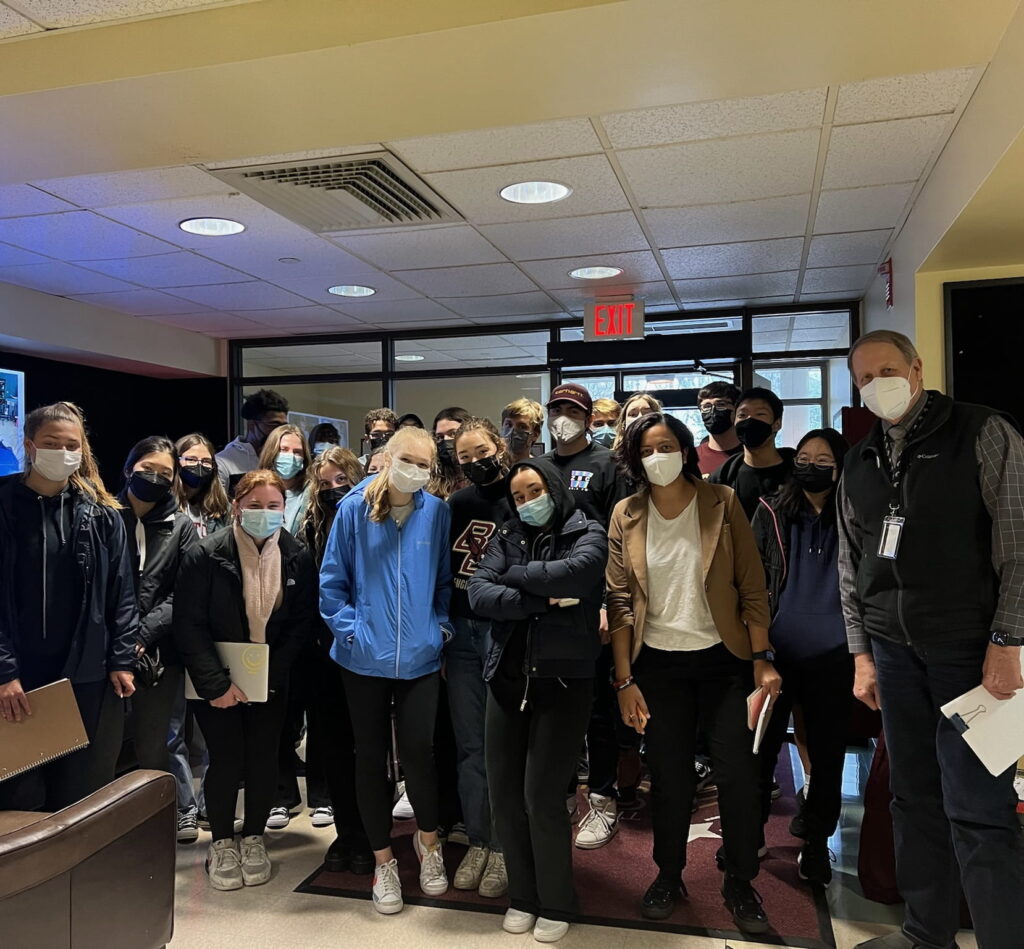
ENGR 1026: Innovation through Engineering Design
Engineering design involves working through a structured framework and practices to creatively understand, work on, and iterate on problems. In this foundational course, we introduce ourselves to the framework, mindset, processes, and methods at the core of Engineering Design and Design Thinking over three scaffolded projects over the course of the semester.
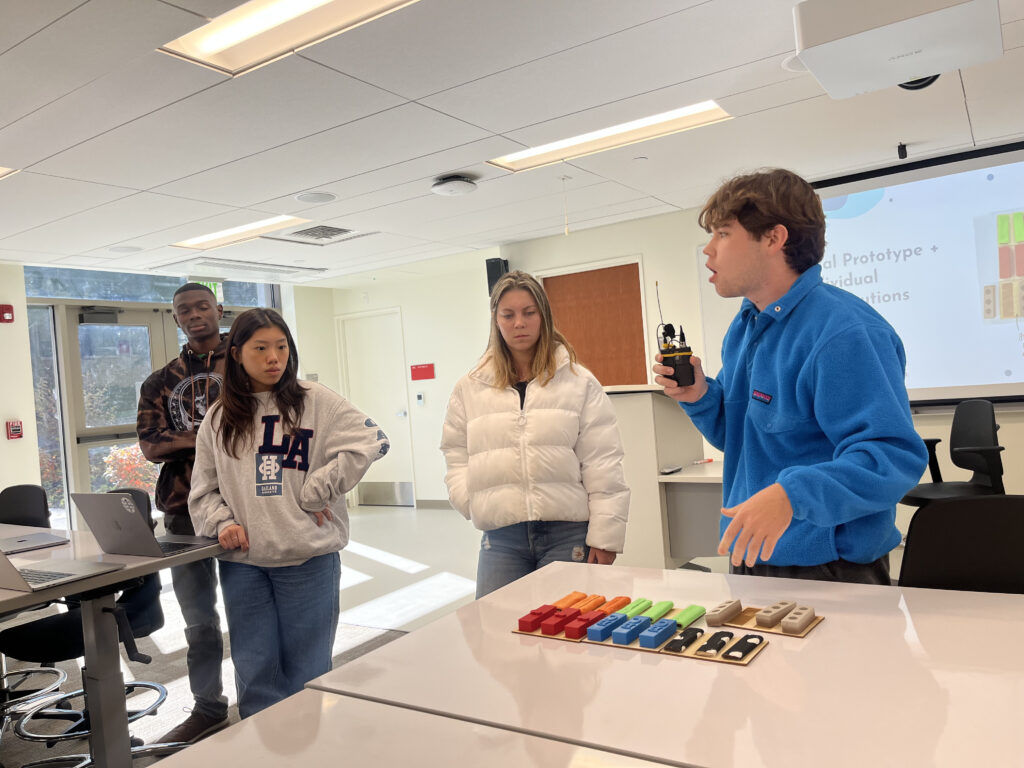
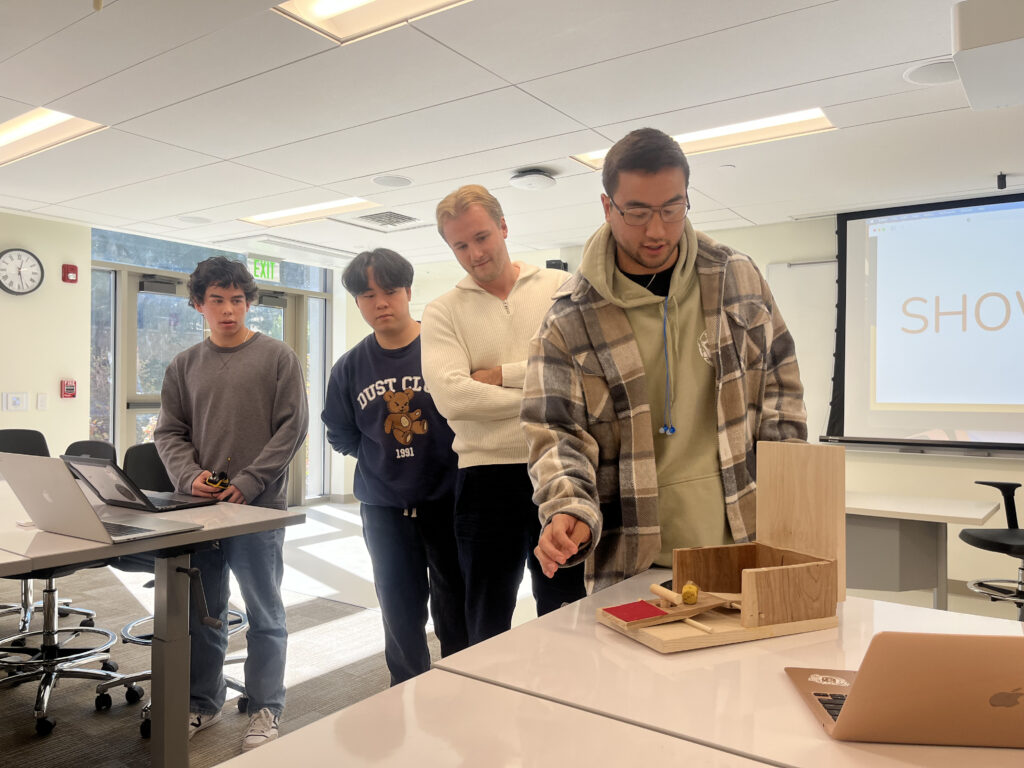
Community Partners
